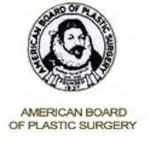A front page article in USA today reviewed a burgeoning problem in the world of cosmetic surgery…a growing number of complications spurned by surgeons of dubious training backgrounds. As insurance reimbursements have continued downward to abysmal levels, doctors who are trained in many other medical specialities than plastic surgery are either doing or opening their own cosmetic surgery practices.
Because federal and state laws have little to no governance over what goes on in an office setting, cosmetic operations are popping up everywhere. When combined with the ease of having a professional and slick-looking presence on the internet, it is seemingly hard for the public to separate legitimate from questionable doctors and practices. With a growing age and body conscious society, there is no shortage of potential patients who are willing to spend money on a wide variety of cosmetic procedures.
We live in world now where just about anything seemingly goes. ER doctors and internists are performing liposuction, Ob-Gyns are inserting breast implants, Dermatologists are practicing facelifts and Eye doctors are having their hand at rhinoplasties, to name just a few incongruous combinations that a decade ago were unthinkable.
The unsuspecting general public understandably asks how can this be? With no oversight in a doctor’s office or in some private surgery centers, any doctor with a medical license can do whatever they want. With the allure of cash payment upfront and no interference from insurance companies which don’t oversee cosmetic surgery, little more than a doctor’s conscience separates some cosmetic operations from prospective patients.
For those procedures that require expensive equipment to perform, the manufacturers actually exacerbate this problem. They will sell any piece of equipment, lasers and liposuction machines as the most common devices, to any doctor that has a medical license regardless of their background. With such devices that cost anywhere from $25,000 to $150,000, they apparently need to expand their potential sales market. In my city of Indianapolis, I know of ENT surgeons that perform breast augmentations in their own facilities. When asking the local sales representative why would a breast implant manufacturer sell breast implants to a doctor with no formal breast surgery training, he shrugs and says we have to because that is company policy.
When you don’t have good training and a long history of satisfied patients, one of the most appealing pitches is that of a lower cost. Offering steep discounts over many board-certified plastic surgeons, lower prices help drive many non-discerning patients through the doors. With the growing discount concept like Groupon, price will continue to be a driving motivation for new cosmetic patients. But lower prices almost always reflect that the procedure will be done in the office under local or sedation anesthesia where costs can be saved. But it may also reflect that the doctor lacks adequate training and qualifications to perform the procedure in a hospital-associated or accredited facility.

Dr. Barry Eppley
Indianapolis, Indiana



